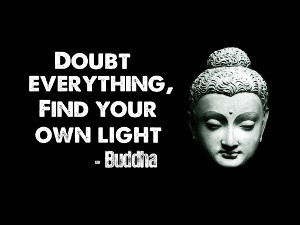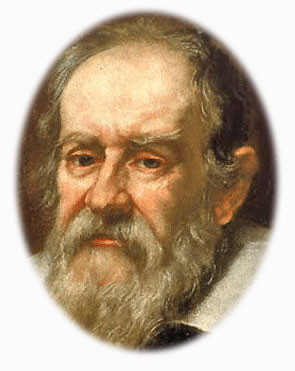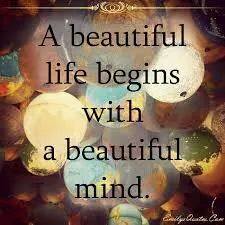Wisdom
If you’re on social media these days, a large proportion of what you see there purports to be wisdom. You know, the kind of thing that finds its way onto your Twitter stream every few minutes:
“Assume good intent and you won’t find it where there is none; assume bad intent and you will find it everywhere.”
or on Facebook in the form of a cute image:
These quotations, these inspirational mottoes, these pithy condensations of experience, are everywhere you look. They range from the completely banal to the infuriatingly wrong, from the vague and wooly expression of feel-good sentiment, to ideologically-motivated statements of wishful thinking. I could give you endless examples of all of these but, instead giving this stuff even more air time, I refer you to these pages and the thousands like them.

All bollocks it is.
It’s not that I disagree with all of these sentiments. Some seem quite sensible and credible. Such nuggets of wisdom, sifted from the life experience of intelligent people who have striven to express the lessons they have learned, can’t help but be interesting, challenging, even useful in rare instances, but the nuggets are mixed in with countless tonnes of worthless gravel. And, even when I find one, I have to ask myself three big questions:
1. Is there any well-documented, precisely observed, rigorously controlled, analysed and reviewed evidence for this assertion, or is all I have to go on the opinion of the person who said it?
2. Are there things I know, is there other evidence I can bring to bear, is there a chain of argument I can find, to help me judge whether this assertion is true or false?
3. Even if it is true, do I understand clearly the circumstances in which it might be true, and the circumstances in which it might be false?
I can’t help it; I have a sceptical mind. If someone says to me, “A positive attitude will lead to positive outcomes.” I think, “How do they know? Surely this is an empirical question? You can measure the positivity of people’s attitudes and you can measure the positivity of outcomes (although it’s all going to take a LOT of operationalising your definitions!). Someone must have done some relevant scientific studies.”
And yet, I know that for most assertions people make there will never be the kind of evidence that I like to see. Most of these assertions are just not the kind of thing there can be evidence for. Either they are statements of belief (or wishful thinking) based on religious or other superstitious thinking. Statements like, “We are here to heal, not harm. We are here to love, not hate. Etc.,” are entirely metaphysical and there is no evidence in the world that can ever verify or refute them. You have to take it on faith – or reject it. Then there are statements which try to shift our perspective on life – usually by attempting to redefine a word so that it means something nicer than it used to. For example, “Greatness is not found in possessions, power, position or prestige. It is discovered in goodness, humility, service and character.” I suppose this is so that people with no possessions, power, position or prestige can still tell themselves they are “great”, as well as being an exhortation to be good, humble, give service and have character. Which all assumes that people want to believe they are “great”. The ploy is meant to be subversive but I can’t see how it could work. If you start defining “greatness” so that it encompasses people with no possessions, power, position or prestige, we’ll just need another word for the people who have them (“one-percenters”, anybody?)

Probably unwise.
Before the rise of science, wisdom was all we had. Individuals would live a long and full life, read the conclusions of other individuals, and, if they were very clever and disposed to be contemplative, come up with some distillation of what they had learned about themselves, the world, and other people. There was some possibility of an accumulation of wisdom (because of the writing things down thing) but, since your access to the experiences of anyone else was extremely limited, it was hard to judge the quality of their conclusions. So, every piece of wisdom was generated anew in each generation, everything that had ever been said before (and written down) filtered through the narrow channel of a new individual’s experience and intelligence. It is hardly surprising that we still find many profound and apparently true statements that were uttered thousands of years ago by Greek or Chinese philosophers. The fact is that wisdom is a very, very limited kind of knowledge and one that is not cumulative in the way that scientific knowledge is.
It’s also extremely difficult to judge the quality of wisdom. An unsourced quotation is almost useless. All you have to go on are the words themselves. With wisdom, it helps to know something about the person who said those words so you can judge the context in which they were said and gauge the range of application they might have. This is nowhere more true than in the field of politics. “All men are created equal,” is the kind of statement where knowing the speaker and the context really helps you understand what on earth might have been meant by such a bizarre assertion.
And on social media, there is just so much wisdom, most of it completely ridiculous, that the little real truth in there is lost – probably forever. It seems to me that the Internet has killed off wisdom. Any vaguely profound-sounding statement made by anybody at all, regardless of their qualifications, flies around and around the aether like snowflakes in a blizzard. Wisdom has been so devalued we might all as well read advertising slogans as pay any attention to this stream of nonsense. Read it for entertainment, by all means (or read Christmas cards, they’re just as good) but please don’t take it seriously. Wisdom was never particularly good; it was just the best we had at the time. Now, thank Galileo, we have science and the (provisional) knowledge it produces is the only kind that has any value any more.

Warning: Science might not make you happy.




